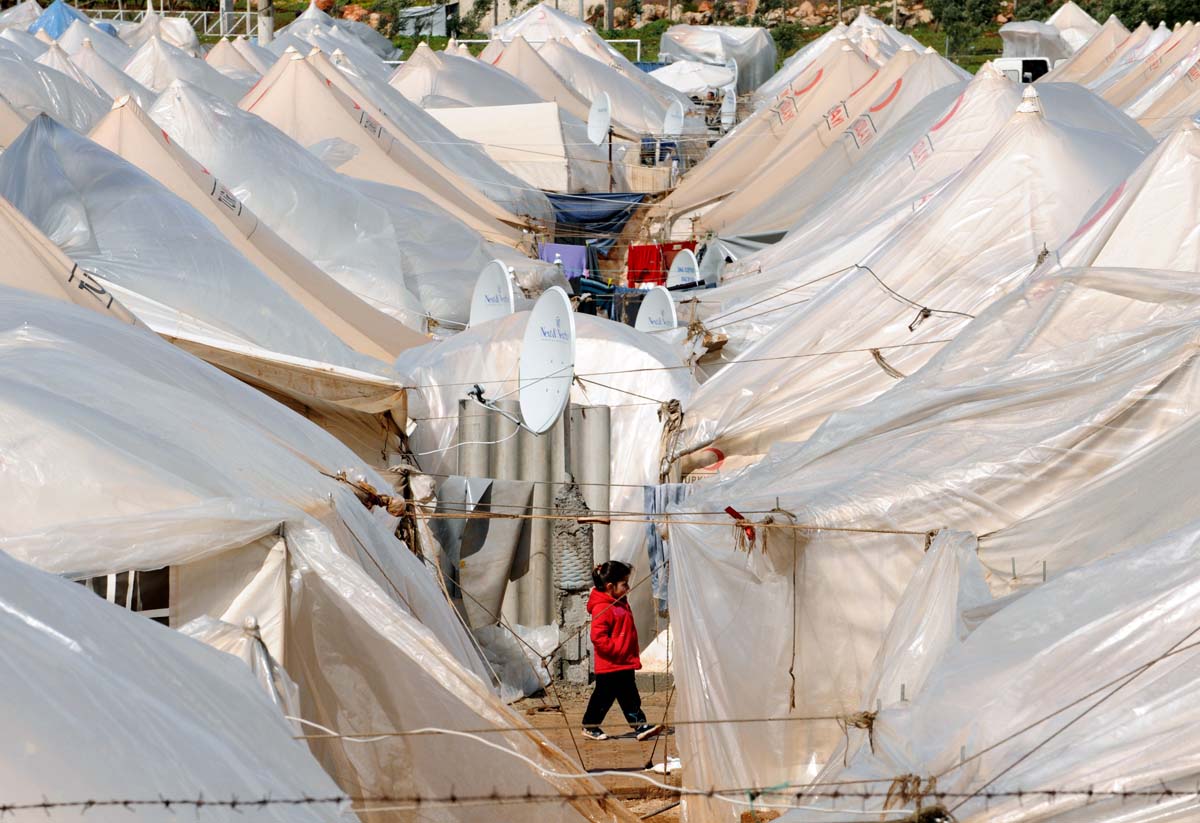NEW YORK: Days after Sri Lanka’s government defeated its long-time foe, the Tamil Tigers, in May, United Nations Secretary-General Ban Ki-moon flew into the country’s capital, Colombo, for a 24-hour visit to urge its president to open up its refugee camps to international aid groups. This was another urgent trip by Ban to a war-torn capital, as part of his regular duties as the UN’s chief representative, seeking to uphold peace and restore global comity.
But who really knew much about this latest foray into a troubled region by the UN chief? Not many. Ban, who has just marked the half-way point in his five-year term in office, has so far been unable to attract a large worldwide audience for his activities. This is due, in part, to stylistic reasons, but also to the vagaries of UN diplomacy.
Still in his quiet way, Ban is spending more than a third of his time on the road, and has accomplished much over the past 30 months. In Darfur, he managed to get African Union peacekeepers into Sudan’s killing zone in his first year in office through intensive behind-the-scenes diplomacy. Though the political process has since stalled, he has pushed for more peacekeepers and helicopters.
In Kosovo, Ban was able to lower the temperature on the boiling issue of the province’s independence. He persuaded the European Union and the United States to allow continued UN oversight in Kosovo while gradually permitting self-governance – all without triggering dangerous confrontations with the two states which oppose its breakaway, Serbia and its close ally, Russia.
In Myanmar, despite bitter resistance from the military regime, Ban pressured the authorities to let in humanitarian aid after Cyclone Nargis devastated the country last year. His public and private entreaties, including dozens of phone calls and meetings, saved perhaps a half-million lives. Today, he continues his call for the release of the democracy leader, Aung San Suu Kyi.
In Haiti, which still suffers from underdevelopment, political turmoil, and the effects of destructive hurricanes, Ban appointed former US President Bill Clinton as his Special Representative to help deal with the country’s plight.
This followed two visits he made to Haiti over the past 18 months and a donor’s conference he sponsored in April that sought to raise $300 million in aid and investment.
More recently, Ban took an active role in the Gaza crisis. He has regularly defended the Palestinians’ rights to a state, but he also condemned Hamas’s rocket attacks on southern Israel. During the fighting in Gaza, he publicly demanded a halt to the warfare and requested that Israel open Gaza’s borders to relief aid. He also visited the UN compound in the center of Gaza to express the UN’s grave concern over its bombing.
Ban has taken a leadership position on the problem of global warming. He tackled the issue at the Bali Conference of 2007, made it one of his central concerns at the UN, and will attempt to forge a new agreement among all global states at the UN Conference in Copenhagen in December 2009.
And he has moved forward in the health field. He accelerated efforts to eliminate the world’s most dangerous ancient scourge, malaria, by naming a special adviser on the disease, and by forging innovative partnerships within the UN system that have brought together private industry, foundations, and non-governmental organizations. His campaign has already helped to reduce the incidence of malaria.
The problem for Ban is his diffident manner, which stands in stark contrast with that of his predecessor, Kofi Annan, a larger than life secretary-general who dominated the scene through his flair, eloquence, and star power. Ban, by contrast, is neither charismatic nor an inspirational speaker – indeed, his English is not as good as Annan’s. In his own way, though, he is an engaging, polite man, hip to contemporary cultural icons, and even given to singing at public occasions with wry lyrics and verses.
Nonetheless Ban is sometimes criticized for not doing more, not listening enough, or deferring too much to the Big Five countries on the Security Council. One of the main complaints is that communicating with him can be difficult. Ban invariably nods his head in polite agreement without giving clear guidance. Others say he has yet to prove he is a good manager and must push harder for internal management reforms at the UN. Ban, in turn, has openly chastised member states for not giving him sufficient resources. But, wherever the truth may lie, few critics take into account that he, like all former UN chief executives, has to deal with the reality that he possesses only moral power, not economic, military, or political power.
Still throughout his tenure, Ban has consistently displayed progressive instincts on issues, despite the fact that his candidacy was originally championed by an authoritarian Chinese government and a right-wing, UN-bashing American envoy to the organization, John Bolton. In the end he should be measured by what he has accomplished rather than by personal foibles or flatness of style.
Stephen Schlesinger, a Fellow at the Century Foundation, is the author of Act of Creation about the founding of the United Nations. This commentary is published by DAILY NEWS EGYPT in collaboration with Project Syndicate, (www.project-syndicate.org).


